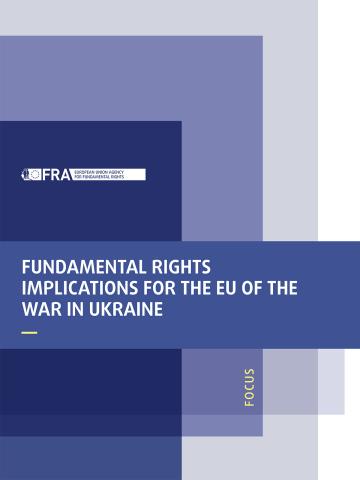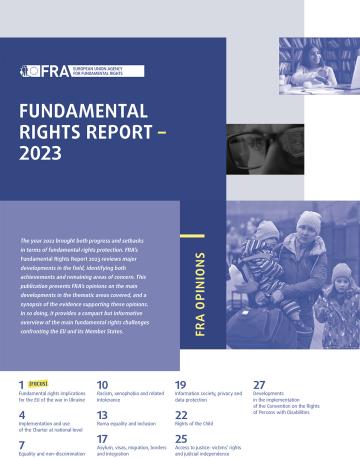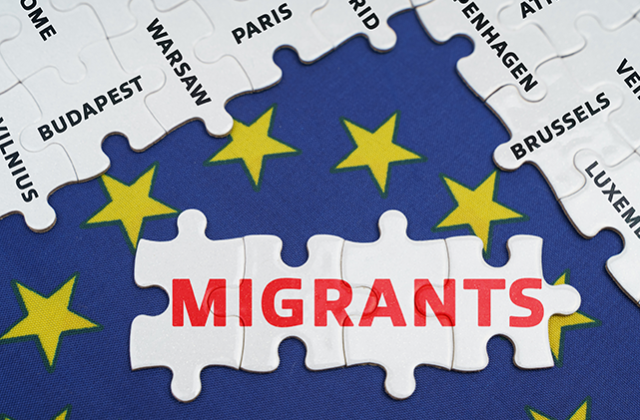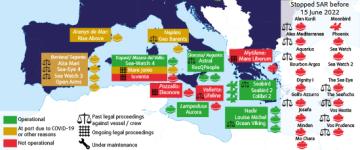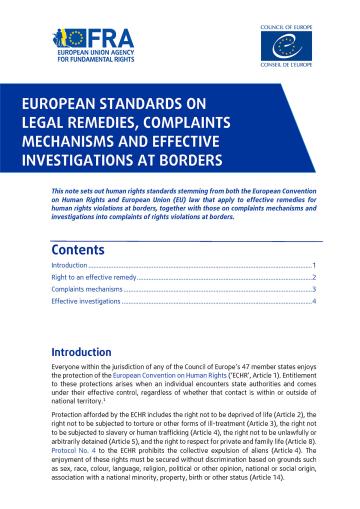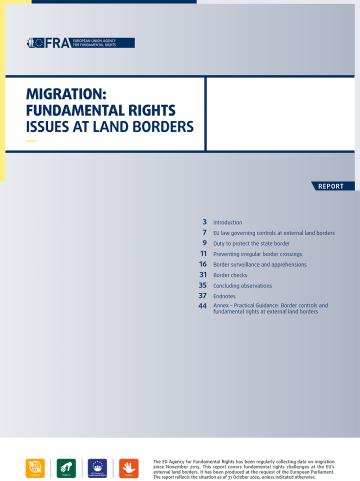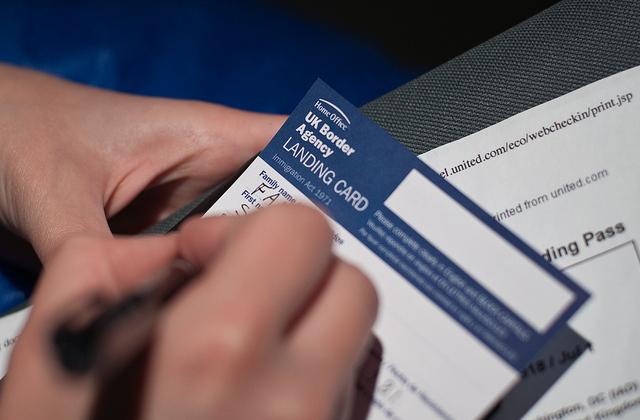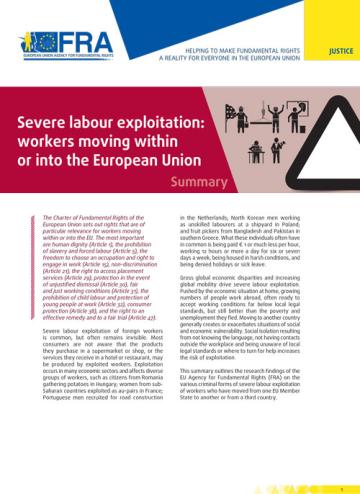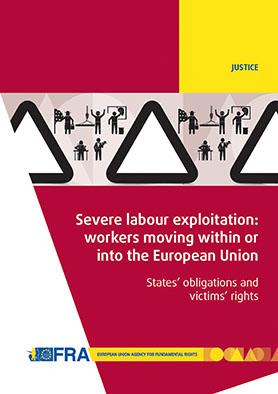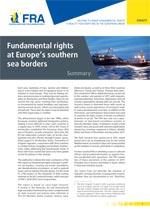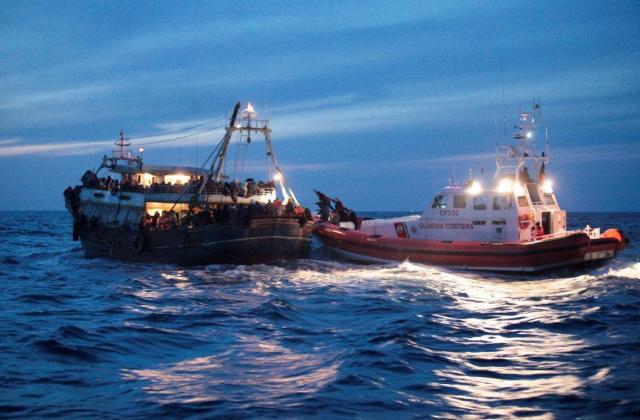The trend to delay search and rescue is linked to lack of solidarity for taking charge of disembarked people. In essence, the Member State that rescues migrants at sea is responsible to assess their asylum claim and/or carry out the return procedure. [48] Regulation (EU) No. 604/2013 of the European Parliament and of the Council of 26 June 2013 establishing the criteria and mechanisms for determining the Member State responsible for examining an application for international protection lodged in one of the Member States by a third-country national or a stateless person (recast), OJ L 180, 29.6.2013, pp. 31–59.
This may discourage or delay rescue or disembarkation. [49]
See in this context also FRA (2022), June 2022 Update – Search and Rescue (SAR) operations in the Mediterranean and fundamental rights, 20 June 2022, table “Vessels without a safe port”.
Against this background, soon after the shipwreck, UNHCR and IOM called for an agreed regional disembarkation and redistribution mechanism for people who arrive by sea. [50]
UN Refugee Agency and International Organisation for Migration, IOM and UNHCR Call for Decisive Action Following Mediterranean Tragedy, news item, 16 June 2023.
Previously, in December 2022, UNHCR had highlighted that “in rescue contexts—particularly where an incident or ongoing pattern involves significant numbers of arrivals—States of disembarkation should not be solely responsible” and that “suitable responsibility sharing arrangements (intraregional and beyond) are necessary to relieve burdens on particularly affected coastal States and protect the integrity of the search-and-rescue regime by avoiding disincentives to timely rescue and disembarkation.” [51]
UNHCR (2022), Legal considerations on the roles and responsibilities of States in relation to rescue at sea, non-refoulement, and access to asylum, 1 December 2022, para. 4.2.
Efforts at EU level have been made. In June 2022, 21 EU Member States and Schengen Associated Countries established a voluntary solidarity mechanism. The mechanism aimed to primarily support Member States who disembark survivors of rescue operations. It envisages the relocation of persons in need of international protection, giving priority to the most vulnerable ones. The mechanism was set up for one year and can be renewed. [52]
French Presidency of the Council of the European Union (2022), ‘First step in the gradual implementation of the European Pact on Migration and Asylum: Modus operandi of a voluntary solidarity mechanism’, 22 June 2022.
Although over 8000 relocation places were pledged following the declaration, [53]
European Commission Task Force Migration Management, Solidarity Platform ‘Pact’ Operational Conclusions, 27 June 2022;
by June 2023, just one year later, only a few hundred people were relocated. [54]
Trasca L. (2023), Migration and the EU Voluntary Solidarity Mechanism: A Failed Attempt to Address the Impasse?, European Studies Review, 19 March 2023; see also EU Debates, European Voluntary Solidarity Mechanism coming into action soon? Ylva Johansson debates, 22 November 2022, (video) see 0:10).
Considering that search and rescue events persist, Member States should continue the voluntary solidarity mechanism established in June 2022 with increased number of relocations. When implementing it, Member States should apply it to all asylum seekers and beneficiaries of international protection, regardless of their nationality.
With the Pact on Migration and Asylum, in September 2020 the European Commission proposed a mechanism to address the specificities of disembarkations following search and rescue (SAR) operations. [55]
European Commission (2020), Proposal for a Regulation on asylum and migration management and amending Council Directive (EC) 2003/109 and the proposed Regulation (EU) XXX/XXX [Asylum and Migration Fund], COM(2020)610 final, Brussels, 23 September 2020, see in particular Arts. 47-49.
In essence, the proposal envisaged the creation of additional solidarity measures on top of those for Member States under migratory pressure to assist Member States that disembark migrants and refugees rescued at sea. The Commission proposal was based on the idea that people who are disembarked should be distributed in a proportionate manner among the Member States. [56] Ibid., Recital (21).
The legislative proposal is now being negotiated. While a solidarity mechanism for people disembarked following a search and rescue operation is still present in the position of the European Parliament, [57]
European Parliament (2023), Report on the proposal for a regulation of the European Parliament and of the Council on asylum and migration management and amending Council Directive (EC) 2003/109 and the proposed Regulation (EU) XXX/XXX [Asylum and Migration Fund], 14 April 2023.
the comprise text in the Council removed it. [58]
Council of the European Union, Proposal for a Regulation of the European Parliament and of the Council on asylum and migration management and amending Council Directive (EC) 2003/109 and the proposed Regulation (EU) XXX/XXX [Asylum and Migration Fund], General approach, Council Doc. No. 10443/23, Brussels, 13 June 2023, which deleted Arts. 45-56 of the proposed regulation.
In FRA’s view, a special EU level solidarity mechanism, which shares responsibility for all migrants and refugees rescued at sea, would contribute to more effective search and rescue actions.








